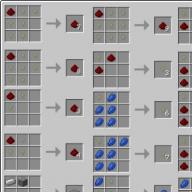Over a long nine months, a variety of changes occur in the body of a pregnant woman. All organs and systems adapt to the needs of the growing fetus. The unstable hormonal background also dictates its own rules, and while expecting a child, a woman sometimes has to experience some discomfort. Minor troubles are usually more than covered by the joy of meeting the baby soon, but more difficult situations may require more serious treatment than auto-training.
One of the most common reasons for seeking medical attention during pregnancy is perineal pain. Some expectant mothers convince themselves to be patient, hoping that the unpleasant sensations will go away by themselves. Others immediately panic, thinking that it comes about premature birth. An inevitable visit to the doctor helps a woman to cope with her anxiety and find a way to relieve her condition.
Why does perineal pain occur?
The perineum is a complex of muscles that closes the exit from the pelvis. The external genitals and anus are also located here. Soreness in this area does not always mean serious problems. In some cases, they are one of the signs of a normal pregnancy, in others they signal that it is time to urgently run to the doctor. How to understand all this variety of symptoms?
Early perineal pain
There should be no discomfort in this area until about 20 weeks. The baby takes up very little space, and the uterus has not yet reached such a size as to press on the exit from the small pelvis with its weight. But the longer the period, the lower the fetus sinks, which means, the stronger its effect will be.
Soreness in the perineum at the most early dates most often speaks of threatening miscarriage. In this case, the woman will also experience pulling pains in the lower abdomen. Bloody discharge from the genital tract is possible. As a rule, at this stage, the expectant mother is already at the doctor's appointment. After the examination, the doctor will suggest that the woman do an ultrasound of the pelvic organs. If no serious deviations are found, and the baby's heart beats, the gynecologist will prescribe medications to help bring the baby to the due date. With significant detachment of the chorion (fetal site), pregnancy usually cannot be saved.
The only one physiological cause, leading to the appearance of pain in the perineum in the early stages, is a cyst of the corpus luteum. In this case, unpleasant sensations in the groin are possible, as a rule, on one side. The corpus luteum forms at the site of the egg after ovulation. It is this that produces progesterone until the placenta is formed at 14-16 weeks. Sometimes the corpus luteum degenerates into a cyst, which grows and leads to discomfort in the perineum. The corpus luteum cyst does not pose any danger to the mother and child and usually disappears completely after 16 weeks.
Pain in the perineum in the second half of pregnancy
After 20 weeks, the onset of discomfort is associated with a variety of reasons. Most of them do not require any special treatment and go away by themselves by the time of delivery.
1. Softening of the ligaments
The changed hormonal background affects all organs of the expectant mother. The ligaments that held together the muscles of the perineum gradually soften. This is necessary so that the child can pass through the birth canal without problems. Usually, such pains appear at a period of 36-37 weeks and indicate the imminent birth of a baby.
2. Multiple pregnancy
The large weight of both babies, already from the second half of pregnancy, puts quite strong pressure on the perineum. The ligaments do not stand, the expectant mother experiences a wide variety of sensations from mild discomfort to severe pain. The same situation develops in the case of pregnancy with one, but very large fetus after 30 weeks.
3. Wrong position of the fetus
In this situation, any baby's movements will cause a lot of discomfort to the mother, including in the perineal area.
Women who played sports before pregnancy rarely complain of perineal pain. Their muscles and ligaments are ready for any load, and bearing a fetus is not a big problem for them. It's another matter if the expectant mother is not a fan. healthy way life. Unprepared perineal ligaments react to rapid weight gain with unpleasant painful sensations.
All these reasons are physiological and do not pose any danger to the expectant mother and her child. After the baby is born, any discomfort stops.
When should you worry?
1. Threat of termination of pregnancy
Pain in the perineum caused by an increased tone of the uterus is a rather dangerous condition. As a rule, they are accompanied by pulling pains in the lower abdomen and in the lumbar region. In some cases, they are the first sign of the onset of premature labor. If you experience these symptoms, you should immediately consult a doctor.
2. Symphysitis
This formidable complication develops in the third trimester of pregnancy. Normally, the pelvic bones and ligaments begin to soften by 36-37 weeks to enable the baby to be born. But there are situations when this process begins much earlier. The expectant mother feels severe soreness when walking in the pubic area. The sensations intensify when climbing stairs and other physical activities. Over time, the pain does not subside even at rest, there is a "duck" gait. This condition requires the obligatory consultation of a gynecologist. In some cases, the issue of the need for a cesarean section is resolved.
How to relieve the condition and relieve pain?
- Therapeutic exercises or yoga for pregnant women will help get rid of discomfort. In addition, these activities help prepare for childbirth and improve general state future mother.
- Wearing a prenatal brace relieves stress on the muscles of the perineum and reduces pain.
- Calcium-rich foods can help strengthen your ligaments. It is recommended to include cottage cheese and other dairy products, cheeses, herbs and fish in your diet.
- Frequent position changes can help relieve the condition. Do not stand or sit in one place for too long - this impairs blood flow to the perineum and increases discomfort.
It is important to remember that any discomfort during pregnancy is a temporary condition that is inevitable while waiting for the baby. The birth of a new man more than compensates for all the discomfort that had to endure expectant mother for nine months.
We communicate here:
Pain in various muscles during pregnancy is not uncommon. The muscles of the abdomen, legs and perineum are severely tested from the outside hormonal background pregnant and from the side of a child who is constantly growing and moving. The muscles of the perineum are most stressed during pregnancy, as they cover the outlet of the small pelvis. When pregnancy occurs, these muscles are stretched, thereby preparing for natural childbirth.
The reasons why the muscles of the perineum may hurt in pregnant women depend on many circumstances, individual characteristics women and the course of her pregnancy.
1. Women who played sports before pregnancy usually do not suffer from pain in the muscles of the perineum due to the elastic state in which they are located. But for women who are inactive, an increase in load and weight can lead to sprains and muscle injuries, which are characterized by pain in the perineum, abdomen and other muscles. Therefore, it is very important to engage in muscle strengthening before and during pregnancy.
2. Hormones act on a woman's body during pregnancy in such a way that the ligaments that connect the pelvic bones soften, thereby ensuring the passage of the baby through the birth canal. Divergence of bones and relaxation of the pelvic ligaments on last months pregnancy can feel like perineal pain.
3. Improper intrauterine position and movement of the baby can also cause short-term pain in the muscles of the perineum. The child moves, kicks with his foot, which sometimes gives not very pleasant sensations for the expectant mother.
4. Abundant pregnancy. This is a strong increase amniotic fluid, which is accompanied not only by pain in the muscles of the perineum, but also a feeling of heaviness in the abdomen, acute pain in the lower back and increased blood pressure. It can be both at the beginning and at the end of pregnancy.
5. Too much baby weight also affects the muscles in the perineum and can cause pain.
6. The tone of the uterus can cause pain in the muscles of the perineum. It is especially dangerous in early pregnancy. This can pose a threat of miscarriage. The appearance of discharge during this is an additional symptom that should serve as a reason to call a doctor.
7. The drooping of the baby's head in the last weeks of pregnancy puts pressure on the vessels and nerve endings and muscles in the perineum, which also gives unpleasant and even painful sensations. There may be swelling of the genitals, constipation, frequent urination and other symptoms.
Almost all of these pains are normal, but should be reported to the gynecologist in order to help understand real reason and if necessary, cope with them. The presence of other symptoms in combination with pain in the muscles of the perineum is an urgent reason for contacting a gynecologist.
Remedial gymnastics is great for reducing pain in the perineum.
In recent months, a bandage can help, which can share the load on the body.
Unfortunately, some of the causes of such pain must be endured before childbirth.
Prevention is performing exercises with a specialist who deals separately with pregnant women.
After the birth of the baby, pain in the muscles of the perineum for all of the above reasons stops.
Material prepared specifically for the site
Probably, there is hardly a woman who could say that nothing bothered her. Although it is believed that pregnancy is not a disease, nevertheless, nature is arranged in such a way that during this period significant changes occur in the body, and they are often not very comfortable for the expectant mother.
Often, pain in the perineum during pregnancy makes itself felt, and the question immediately arises - how normal is this? Is there any reason for concern, or is it better, as they say, "endure"? Let's try to figure out why they arise at all and how to behave in such situations.
It is important to pay attention not only to the pains in the perineum during pregnancy, but how often and for how long they occur. This is what will help to accurately determine the causes of painful sensations.
Please note that if they occur after 35 weeks or a little later, then this is a signal that the body is preparing for an early birth. And they really are not far off, since the usual gestation period is 38 to 42 weeks.
during pregnancy mean that they begin to move apart under the weight of the fetus, the weight of which is already about 3 kilograms, and sometimes more! move apart, and the ligaments do not stretch so quickly and do not keep up with them, and therefore there is a feeling of discomfort.
It happens that the fetus compresses a nerve, most often the sciatic. This can be not only the cause of pain in the perineum, but also in the tailbone, and even in the back.
There are also more serious reasons. Perineal pain during pregnancy can mean varicose veins of the perineum or other diseases. After the examination, the doctor will prescribe the appropriate treatment.
If the pain is caused by natural causes during pregnancy - pressure on the ligaments from the growing fetus, then no medication is required in such cases. Of course, this is unpleasant and very painful, but you will have to endure and relieve pain, for example, by a special or, say, a trip to the pool, which has a very beneficial effect not only on general well-being, but also relieves muscle tension.
But you need to be more attentive to your condition and not strive to "endure" at all costs. It happens that tingling in the perineum during pregnancy, turning into mild pain, is a symptom in those cases if it occurs in the early stages. Or it may be a signal of premature birth, for more later dates after 20 weeks.
Pay attention to the discharge. If they have acquired a brown or yellowish tint, or pink, then this means that blood clots are present in them. In this case, you should immediately consult a doctor.
Most often, women characterize this condition as a lumbago in the perineum. During pregnancy, tremendous changes occur in the body, so if you have doubts, then you should not delay.
By the way, this condition can persist for some time after pregnancy, and not only during it. All this is due to changes in the body, when the pelvic bones converge back after childbirth, which also causes a not very pleasant sensation. There is also a contraction of the uterus, and the woman feels it. But these manifestations in the postpartum stage are not as strong as during pregnancy. If they do not go away within the first month after childbirth, then you should be on your guard. Especially if there were tears during childbirth and the woman was stitched.
In any case, only your doctor will determine the exact cause. Trust the professionals, do not tolerate and do not try to diagnose yourself on your own.
Very often during pregnancy, a woman experiences some kind of pain. This is due both to the new state of the expectant mother, and to the exacerbation of many chronic diseases. , and other illnesses can make themselves felt during pregnancy.
Any pain that is uncomfortable is necessarily a cause for concern. From before and, of course, and after them, every woman experiences colossal changes in her body, which are often accompanied by a certain kind of pain. Therefore, to feel pain while carrying a little man is to a certain extent normal and justified. Although from the point of view of medicine and many spiritual teachings, it is not the experience of pain that is normal, but its absence.

Much in such moments depends on where, what and how the pregnant woman hurts. The most common complaint among expectant mothers is perineal pain. They appear, as a rule, on, being the harbingers of the approaching birth. Moving forward little by little, the baby presses on the ligaments, nerves and muscles. At this time, the hip joints diverge more strongly, but the ligaments do not have time to follow them, therefore, shooting sharp pains, stretching in the legs and perineum may occur.
If a pregnant woman experiences similar sensations in the early stages - in or, then she needs to consult her obstetrician-gynecologist. Often, severe pain in the perineum in the first weeks of pregnancy can occur with the threat of miscarriage. Perhaps a pregnant woman with such a diagnosis will be prescribed certain drugs, but she may also be hospitalized in order to save the baby.
Pain in the perineum can mean both a kind of preparation for childbirth, and have other reasons. In particular, the growing fetus can compress nerves, especially the sciatic nerve. This can be very unpleasant pain. It is painful and uncomfortable for a woman to lie down, painful and difficult to get up. In this case, the expectant mother should endure the pain and ask her baby to take a different position in which he will not put pressure on the nerve. The pain will go away and mommy will feel better.
Also, serious causes of pain in the perineum can be varicose veins in the perineum and loosening of the ligaments. This diagnosis can be made by an obstetrician-gynecologist, prescribing the necessary treatment.
After giving birth, the pain in the perineum will no longer bother the woman. However, this will only happen if there was no perineal tear at the time of delivery. After all, this will also cause pain for some time, as well as the stitches imposed on the breaks.
Let's summarize. Causes of perineal pain during pregnancy:
- manifestation of harbingers of imminent birth;
- pressure by the fetus of the ligaments;
- compression of the nerves by the fetus, especially the sciatic nerve;
- baby's pressure on the muscles;
- divergence of the pelvic bones;
- risk of miscarriage;;
- the threat of premature birth;
- loosening of the ligaments in the perineum;
- varicose veins in the perineum, etc.
- (0)
A frozen pregnancy is a grief for a pregnant woman, as well as for her loved ones themselves. This is a great psychological trauma. But do not despair, [...] - (0)
Macrosomia is a large body in Latin. If you find that the circumference of your abdomen is extremely high in [...] - (0)
Is it necessary to do tests for Torch infection during pregnancy? Is it necessary to do this in a paid laboratory, or can they be handed over to [...]
Fortunately, not all women experience perineal pain during pregnancy, many are lucky, and they avoid this trouble.
In theory, there should not be any special discomfort during the period of carrying a baby, the baby is in the uterus and high enough to somehow put pressure on this area. But as the gestation period increases, the baby becomes more and more difficult, and in the last weeks its head sinks into the small pelvis lower and lower, and of course, discomfort may begin here too.
Perineal pain before childbirth
We figured out why the perineum hurts during pregnancy, but when the due date approaches, the grounds for painful sensations are added.
In the period at 36, 37, 38 weeks of pregnancy, many pregnant women complain about this, and the reason for this is the drooping of the baby's head. The crumb with its weight squeezes the vessels and nerves in the small pelvis, presses on the muscles.
It seems that not only the muscles of the perineum hurt, there is even a palpable swelling. The reason is clear, the baby disrupts the outflow of blood from the genitals, the veins are compressed and this can be accompanied by a feeling of heaviness here, varicose veins of the genitals, hemorrhoids, and pressure on the rectum and uterus leads to frequent urination, etc.
Sometimes the perineum hurts before childbirth due to the fact that the fetus has compressed the nerves, while there may be sharp shooting pains that radiate to the leg. An extremely unpleasant sensation that interferes with sitting normally, and even does not allow lying.
All these stitching, aching, shooting pains cause the expectant mother a lot of discomfort, but, as a rule, with the birth of the baby, all the torment ends.
Although such pain in the perineum is considered almost the norm during pregnancy, at any time it is necessary to inform the doctor about them in order to at least understand the reasons. Sometimes simple measures help relieve pain, prevent the development of hemorrhoids, but self-treatment during pregnancy is definitely not acceptable.
Most often, therapeutic exercises and a bandage for pregnant women help to cope with this pain. By supporting the uterus with the baby in the correct position, the brace relieves pressure on the perineum and the pain goes away.
If the pains before childbirth in the perineum are physiological and only indicate that the baby will be born soon, during pregnancy, as we wrote above, this may indicate danger. Painful sensations in the pelvis are a reason to see a gynecologist, and if you have additional symptoms (discharge, contractions, uterine tone), do it immediately.
Well, after childbirth ... The perineum is the place that will hurt you the most.




